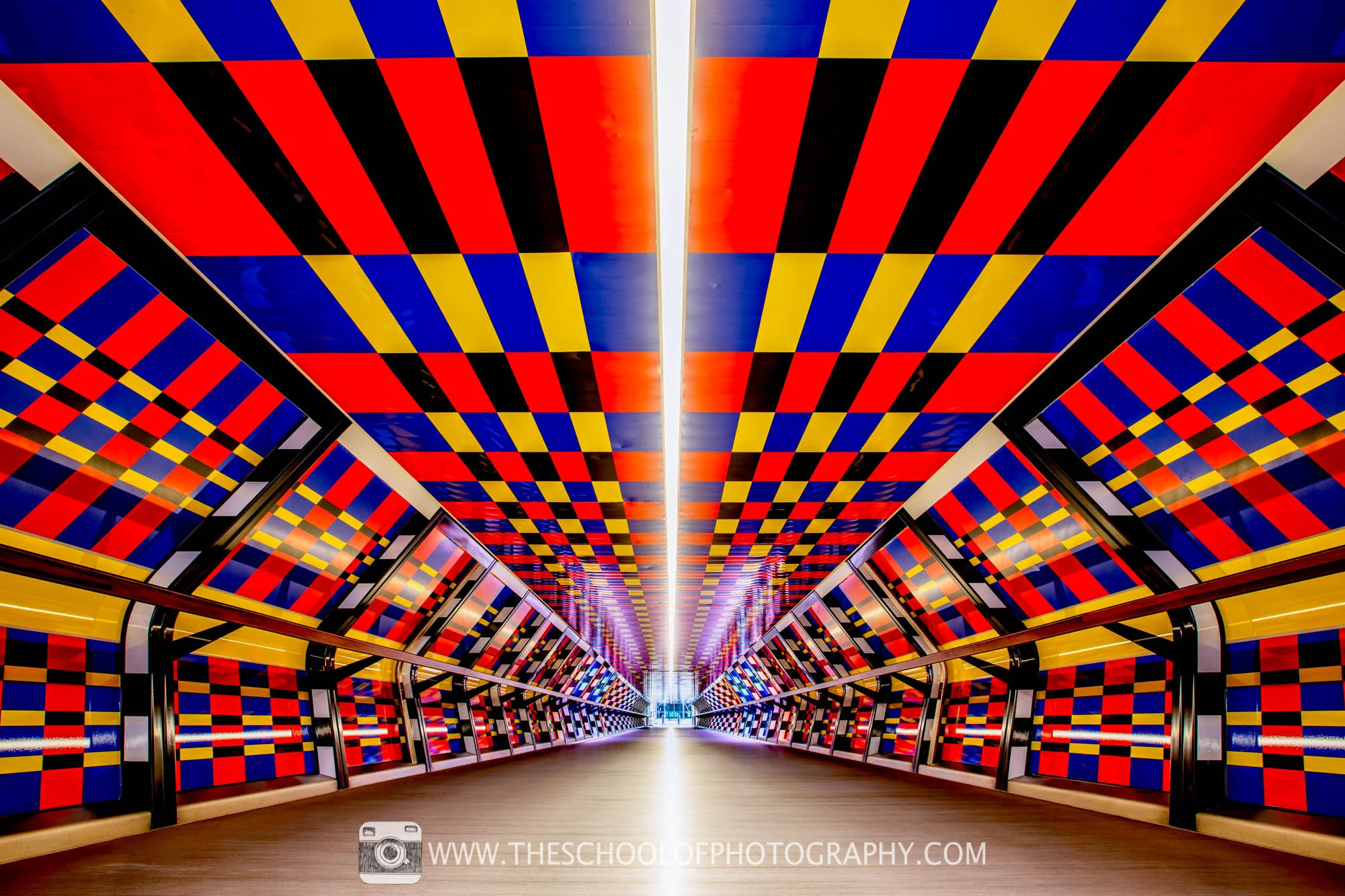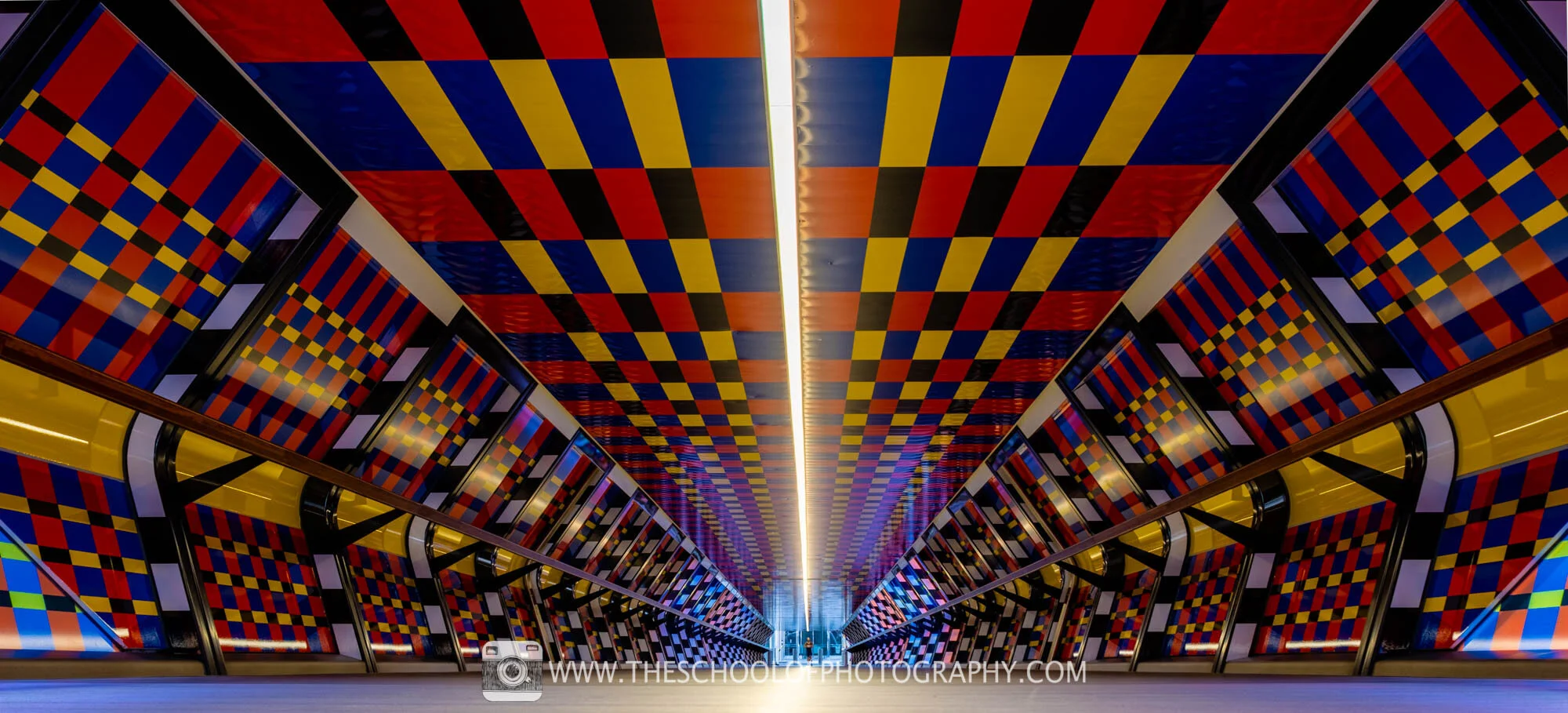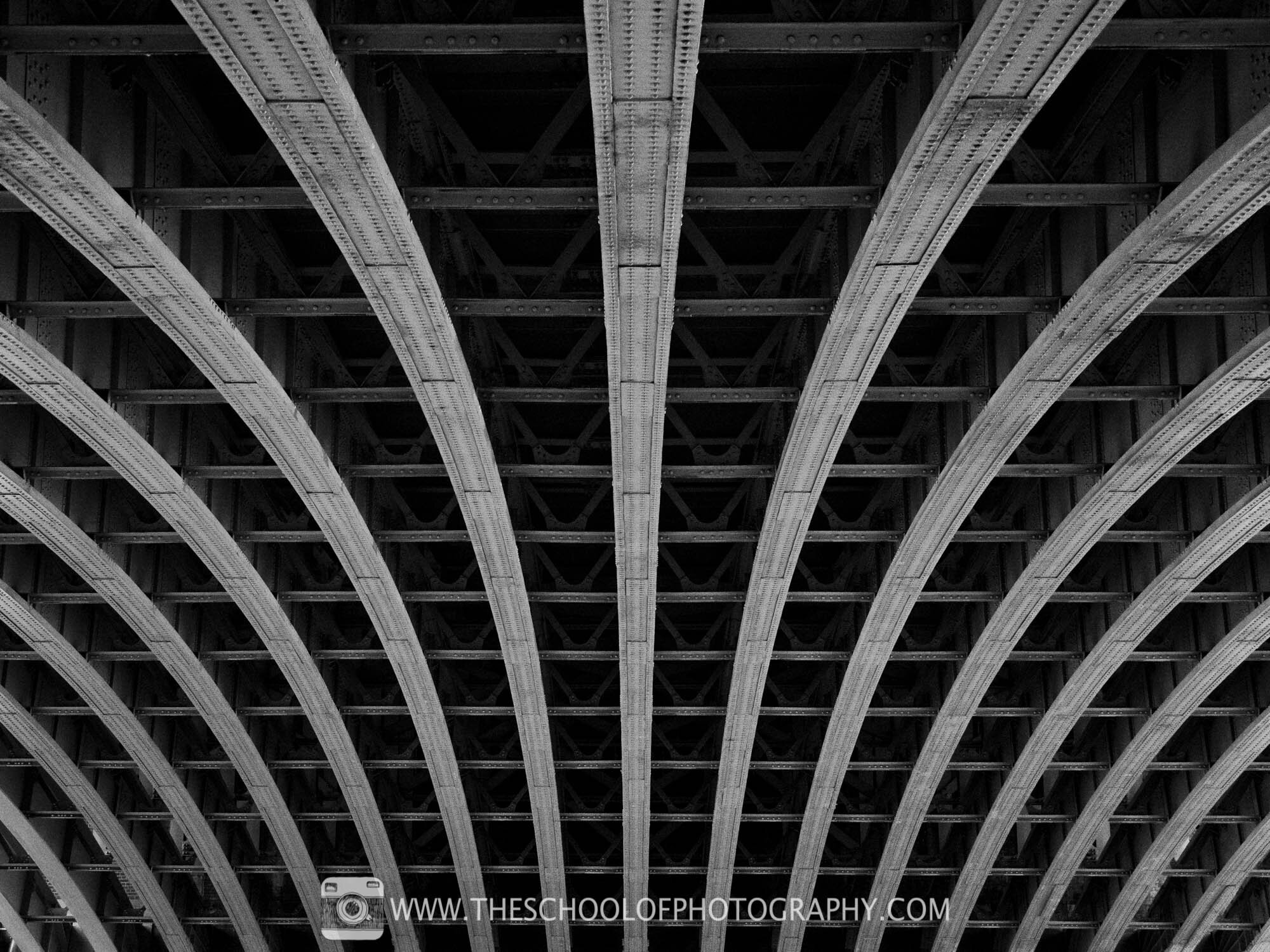These parts are also said to be symmetrical to each other. Patterns like life arent always perfect.

Using Symmetry And Patterns To Create Stronger Photographs
Whether with shapes colors or textures perfect examples of repetition exist all around us.

. Symmetry is a comprehensive tool that a photographer uses to create unique compositions in their photography. Pattern photography is the concept of integrating a repetition of elements into your photographs. With your DSLR zoom in tight to fill the frame with only the elements that are repeating.
The definition of symmetry in photography is a visual balance between two halves of an image. What is symmetry. A row of trees a field of sunflowers or a line of children waiting for a bus.
When two patterns are symmetrical one becomes exactly like another when flipped or turned according to Primary Resources. The heart carved out is an example of symmetry. Pattern can be described as a repeating unit of shape or form but it can also be thought of as the skeleton that organises the parts of a composition.
While finding perfect circles is the first step knowing how to emphasize them comes next. Pattern or similarity. Symmetry Symmetry SymmetryKeep things symmetrical as much as possible people are drawn to symmetrical things this can mean using doorways windows and garden features to frame in your animal.
In order to create photography that captures and emphasizes these elements you can choose to. Another great way to use them is to break the symmetry or pattern in some way introducing tension and a focal point to the scene. See more ideas about photography composition rules.
When you get into the world of close-up photography you will start to discover a whole new world of patterns. Symmetry refers to any reflections across the image. Based on the above examples we obtain the.
The artist sees both scene and drawing surface simultaneously as in a photographic double exposure. What is Pattern Photography. Pattern is an underlying structure that organises surfaces or structures in a consistent regular manner.
A pattern shot gives more of a repetitive feel on one side and the other mimicking symmetry. Photo Snack - Using Symmetry Share Welcome to another NYIP Photo Snack. Symmetry is strictly speaking about mirroring one part of the image to another.
Symmetry creates a feeling of harmony and makes an image more pleasing to look at. Symmetry is achieved when two almost identical halves of an image seem equal in balance and importance. However this symmetry doesnt have to be literal in the sense of one half of an image exactly mirroring the other.
Often things that you perceive as solid or even as a single texture are made up of much smaller patterns. A symmetrical pattern is a pattern in which converging lines form an angle that somewhat resembles an acute angle. Having strong composition and points of interest will help symmetry.
It emphasises the size shape and design of buildings. Regular patterns are often symmetrical and can be found in parts of nature like flowers architecture such as skyscrapers and in street photography with road markings. However if you look carefully you will see in the pattern shot that there are clear differences.
Any line splitting a shape into two parts such that the two parts are the same is called a line of symmetry. Symmetry Math definition states that symmetry is a mirror image. Radial symmetry is the third most common form of symmetry we encounter in photography.
We are surrounded by symmetry and patterns both natural and man-made They can make for very eye-catching compositions particularly in situations where they are not expected. A common example of symmetry is a reflection. Symmetry in photography composition is achieved when two halves of an image hold the same weight.
The mind is pleased by natural order and the circular patterns found in splashes of water the human iris and flower petals star trails and sunsets are captivating. This can involve real reflections such as a subject looking in a mirror or a subject reflected on water. There are many examples of symmetry both in nature and the manmade world which can be intriguing for a viewermirror-like reflections of a landscape on water being a.
In this weeks video we learn all about how to use symmetry in our photography. The image of an object looks exactly like the object when. This is especially true in nature.
Patterns both natural and man-made bring a sense of visual rhythm and harmony to photographs that like a series of repeating notes in a melody capture the imagination. It can also involve illusory reflections such as when you photograph an animal that has identical left and right sides. You may have often heard of the term symmetry in day to day life.
Symmetry in photography creates a sense of harmony and visual cohesion where well structured composition produces an image displaying aesthetically pleasing proportion and balance. This is also known as formal balance or symmetrical balance. While these are some rough guidelines that will help you get better pictures of your food dont let them stop you from experimenting with filters lighting techniques and composition that can bring a.
A reflection is a shape or pattern that is reflected in a line of symmetry. They are usually composed of lines shapes and colors that repeat themselves and it is this repetition that really defines a regular pattern and draws the eye of the viewer into the photo. However that rarely happens in real-world photography.
Draw an imaginary vertical line at the centre of your composition. What does Symmetry do in Photography. Patterns and repetition can be found all around us.
Capturing elements in which there are repeating shapes lines or colors. Patterns appear whenever strong graphic elementslines colors shapes or formsrepeat themselves. Symmetry has been understood and appreciated since ancient times.
Once you do become aware of the power of patterns you will discover them almost everywhere. Both sides of the image carry the same weight meaning the composition is evenly distributed. When an image looks identical to the original image after the shape is being turned or flipped then it is called symmetry.
Vertical symmetry is often used in architectural photography. It exists in patterns. The creation of an image in which both sides either horizontal or vertical should look the same.
Symmetry and Patterns. What is symmetry in photography. Our daily lives are filled with repetitive patterns.
One side is not overly cluttered compared to the other. For instance the image below shows a line of symmetry which splits the red outlined shape into two parts that are exactly the same. A pattern can emerge of similar foliage even though its not symmetrical.
The key for asymmetrical repetitive patterns is to isolate the repetition in your photograph. Jun 2 2016 - How to achieve symmetry and patterns repetition in photography and how to break this rules. In photography using symmetry creates balance and a sense of harmony when viewing the photograph.
If both sides are symmetrical your photo will look visually appealing. Symmetry The perfect example of balance is symmetry where one half topbottom leftright diagonal split of an image is identicalor nearly identicalto the other. Vertical symmetry is the most common type of symmetry.

Pattern In Photography The School Of Photography Courses Tutorials Books

Symmetry And Patterns Photography Junction

Symmetry In Photography Killer Tips To Improve Composition The School Of Photography Courses Tutorials Books

Symmetry In Photography Killer Tips To Improve Composition The School Of Photography Courses Tutorials Books

Using Symmetry And Patterns To Create Stronger Photographs

Symmetry And Patterns Fujifilm Digital Camera X Series Gfx Usa

Symmetry And Patterns Photography Composition Rules

Image Result For Symmetry And Patterns Photography Definition Pattern Photography Photography Definition Photography
0 comments
Post a Comment